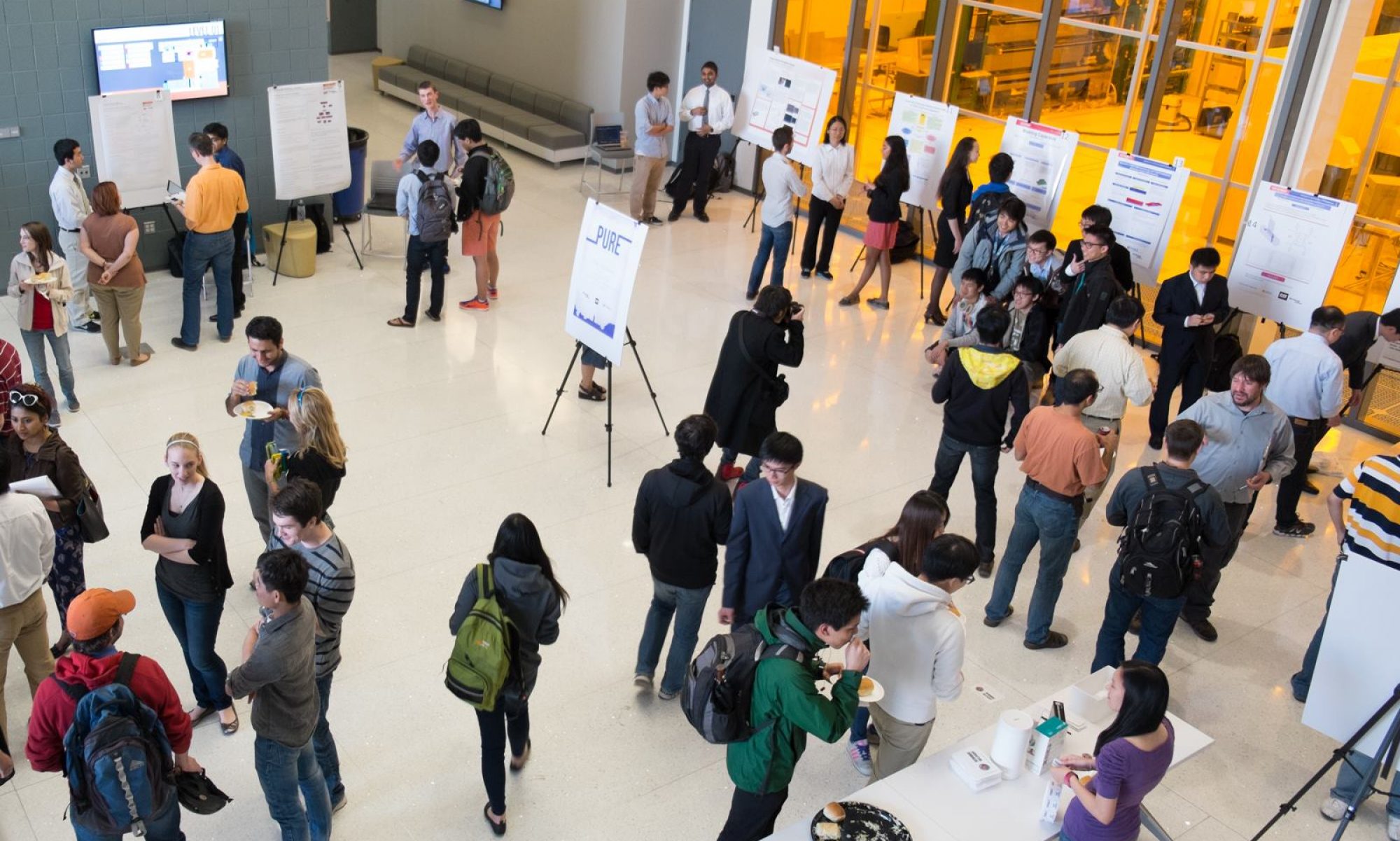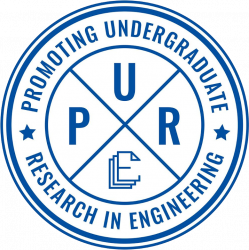The 16 currently listed mentors are for the Spring 2024 semester.
If you have any questions about the information below, please reach out to the PURE Committee at pure-engr-group@office365.illinois.edu.
| Mentor | Description |
|---|---|
| AJ Taylor (Food Science & Human Nutrition) 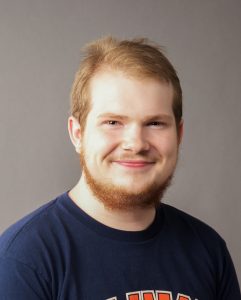 | AJ is a 5th year food science graduate student working on cacao and chocolate. There are currently three different projects that AJ is working on and needs help with. His focus for mentees is that mentees have to be the ones to put in the work and get the reward. Those that succeed are the ones who try. Description of Possible Projects: Project 1: One project that I have now is looking at a cacao tea product and creating a sensory panel for it. This would, potentially, filling out paperwork for IRB, looking into resources for conducting a sensory panel, running said sensory panel, working with panelists, managing sample creations/descriptions/data collection, and statistics later on. Project 2: The second project is using NIR to build a prediction model for quality of cacao beans, along with GIS data too. This one is very data centric and focuses on the collection and cleaning of data for model building using MATLAB or R. To be ABSOLUTELY clear, we are NOT yet at the prediction modeling yet. We have two more variables to collect, which undergraduates interested must recognize, and THEN we will work on the modeling (likely Winter/Spring-time). Project 3: The last project is working on defining properties of cold brew and hot brew coffee that is reused. This would be under a senior undergraduate of mine and myself to look at the acidic, polyphenolic, chemical, and other parameters of coffee. You will get hands-on experience for data collection, management, and then reporting in this project. Desired Skills and Time Commitment: Desired Skills: Skills is more on good chemical background, a quick and appreciative learner, social and able to communicate well, and to be flexible in the project. Time Commitment: 10 hours a week, minimum. You have to know what's going on and can't just do 1 or 2 hours a week. |
| Ananthan Nambiar (Bioengineering) 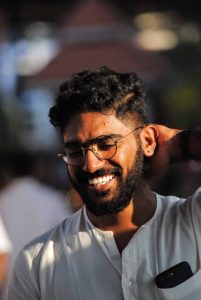 | I am a fifth year PhD student in the Bioengineering Department at UIUC. I received my bachelors degree in Computer Science at Reed College, a small liberal-arts college in Portland, Oregon. At this point in time, my main academic interests are machine learning, complex networks and scientific computing. I am especially interested in biological applications of mathematics and computer science. However, I also participate in projects that involve computational modelling in general. Description of Possible Projects: Deep learning for protein engineering We will be working on deep learning models to characterize the properties of proteins and identify potential mutations that might modify a proteins function. Focus will be on on treating protein sequences as a language and adapting ideas from natural language processing to learn biologically relevant features of proteins. One potential direction for this project (depending on your existing skills) would be to generate novel proteins. Think ChatGPT but for proteins. Desired Skills and Time Commitment: Desired Skills: 1. Python programming 2. Probability and statistics 3. Linear Algebra 4. Experience in deep learning with pytorch/tensorflow (preferable) Time commitment: 10 hours/week would be ideal. However, you should be able to make good progress with a minimum of 5 hours/week. |
| Aniket Murhekar (Computer Science) 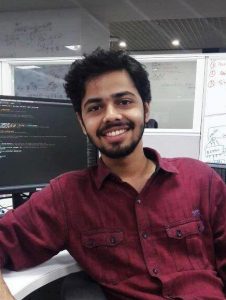 | Aniket Murhekar is a PhD candidate at the University of Illinois, Urbana-Champaign. His research centers around the theme of fairness and efficiency, and studies problems at the intersection of algorithms, economics/social-choice, and machine learning. Some of these problems include: (i) Developing polynomial-time algorithms for computing an (almost) envy-free and Pareto-optimal allocation of indivisible resources, (ii) Fair and incentive-compatible federated learning, and (iii) Classical and learning-augmented algorithms for online resource allocation problems, such as dynamic bin packing for cloud server placement. He completed his Master's from UIUC, during which he was awarded the Siebel Scholarship. Even before, he spent four wonderful years as an undergrad at IIT Bombay where he received the Institute Award for Academic Excellence. Description of Possible Projects: Project: Fair Division App Fair division of items is a common problem encountered frequently in daily life. For instance, roommates may want to decide how to split household responsibilities, how to share rent in case rooms are unequal, or split bills. In these examples, it is important that decisions and allocations are made fairly in a manner that is acceptable to each participating member. More generally, fair division of resources is a ubiquitious problem with broader applications like dispute resolution, divorce settlement, task allocation, etc. The field has received considerable attention in recent years, and numerous algorithms have been developed. In this project, our goal is to implement some of these algorithms in a user-friendly app. We would like to have three features in the app: (i) fair division of goods (ii) fair division of tasks, and (iii) fair rent division. The app would have an interface where users will be able to enter details about the participants, items to be divided, and their preferences. An app for such applications is not in the market. There used to be popular website called 'Spliddit' for such applications, but it is now defunct. Thus, if successful, this project has potential for broad impact. My advisors will also be likely involved in the project. Candidates who are skilled and enthusiastic about Android/iOS app development and design are highly encouraged to apply. There is no restriction by major, though CS/ECE majors are encouraged to apply. Here is a rough timeline of the project. It is tentatively planned for three months. We expect the workload to be about 2-3 hours per week. Week 1: Project scope and goals Week 2-3: App design ideation Week 4-6: Basic UI implementation Week 7-8: Implementing algorithms for feature (i) Week 9-10: Implementing algorithms for feature (ii) Week 11-12: Implementing algorithms for feature (iii) Desired Skills and Time Commitment: Desired Skills: Android/iOS programming experience or enthusiasm to learn. Time Commitment: Around 2-3 hours per week (flexible) |
| Ankan Ghosh Dastider (Electrical and Computer Engineering) 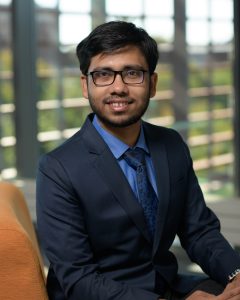 | Ankan is a first-year PhD student in the Dept. of Electrical and Computer Engineering working with Professor Shaloo Rakheja. His research focuses on device modeling and simulation of cutting-edge FET devices. His previous research encompasses 2D materials' property exploration, machine learning-based materials property investigation, deep learning for disease detection, etc. Description of Possible Projects: Machine learning (ML) for materials' property prediction Develop a model for predicting materials properties and compare the performance with existing literature. An example could be building a ML-model for Carbon nanotube's property prediction based on their structural parameters. However, the dataset can be chosen depending on mentees' previous experiences and basic knowledge. The project may expand to Physics-Informed ML to build a robust framework. Desired Skills and Time Commitment: Desired Skills: Time commitment: Approximately 8 hours per week of commitment. |
| Austin Lu (Electrical and Computer Engineering) 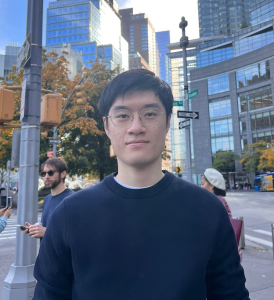 | I am a first-year MS student in Electrical and Computer Engineering. I work with Professor Andrew Singer, with a focus on spatial audio and acoustic signal processing. Recently, I have been looking at the development of novel quiet robots for spatial audio capture. I started as an undergraduate researcher at UIUC and have worked with plenty of undergrads since then. I’m happy to discuss robotics, audio, and general research topics with students. Description of Possible Projects: Project 1: Pulley-Driven SpiderBot Robots provide an attractive solution for controlled movement in acoustic experiments. The recorded spatial audio allows for detailed analysis of how motion may affect the performance of various speech processing systems. Examples of such systems include keyword spotters in smart home devices, beamformers used in conferencing or gaming equipment, transcription software on mobile devices, and much more. In this project, students (preferably in ME, ECE, or SED) will work on the SpiderBot: a novel, room-sized robot that uses several actuated pulleys to move a payload to specific locations and across desired trajectories. As is, we have eight motor modules that need to be securely fastened to the robot frame. After this, students would be expected to learn how to individually control these motor modules, each of which drives a corresponding pulley. If time permits, students will implement a control scheme to drive all the motors in unison, allowing for the stated goal of precise motion trajectories. Required skills: past experience in robotics, a good understanding of mechanics and circuits. Relevant safety training will be arranged for accepted students. Optional skills: CAD Project 2: Multi-axis turret This robot is designed to have a range of motion like that of a person’s head. Using a pair of stepper motors, the robot should be able to swivel left/right and up/down, within reasonable constraints. Students (in ME, ECE, SED, or other, with a focus or interest in robotics) will work with our existing 3D printed robots, focusing specifically on the motor control part of the system. In the first half of the semester, students will research potential combinations of feedback sensor, brake mechanism, and motors/motor controllers, as is found in plenty of online DIY tutorials. However, particular attention will be paid towards minimizing audible noise. In the second half of the semester, students will work on implementing this control loop. If time permits, students will use the equipment in the Augmented Listening Lab to measure the noise produced by the assembled turret. Desired Skills and Time Commitment: Students who have previously worked with robots (either in undergrad or in high school) are preferred. Project 1: Required skills: past experience in robotics, a good understanding of mechanics and circuits. Relevant safety training will be arranged for accepted students. Optional skills: CAD Project 2: Required skills: basic programming proficiency, past experience with Arduino Optional skills: CAD, 3D printing, past experience in robotics, past experience with stepper motors Time Commitment: Historically, students tend to spend 3-5 hours per week, but this is not a rule. |
| Hameed Abdul (Computer Science) 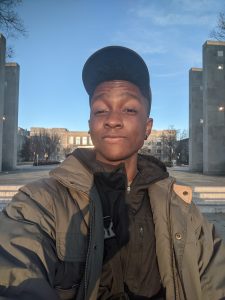 | Hameed is a fourth-year Computer Science PhD Candidate advised by Dr. Tim Bretl. Hameed’s research interests is computer vision for robotic manipulation. He is excited to meet and collaborate with undergraduate students. In his free time, Hameed enjoys Brazilian Jiu-Jitsu, learning Korean, international films and casual biking. Description of Possible Projects: Enhanced Image Labeling with Bootstrapped Models and LLMs This project aims to speed up the labeling process of real images and to leverage existing pose estimation and LLMs to scale diversity of collected real datasets. Students will be tasked to improve an existing GUI interface and incorporate existing models into the labeling interface to enhance the capabilities of users. Measured computation times, memory usage, and average time to label an image will be the metric of success for the interactive GUI. Time permitting, a small dataset of real images will be labeled and used to benchmark models for object detection, instance segmentation, and pose estimation tasks. Desired Skills and Time Commitment: Desired Skills: I am looking for disciplined students with grit and curiosity. Throughout the semester we will actively define, update, and follow bi-weekly milestones. We will push this and other work for a top robotics or computer vision conference/journal e.g. CVPR, TGO, SIGGRAPH, RAL, CORL, etc. Advanced courses at UIUC that touch similar topics: Computer Graphics, Computer Vision, Computational Photography, AI for Manipulation, Deep Learning for Computer Vision Having strong fundamentals or the ability to quickly learn the following would be helpful: Theory: Linear algebra, Probability, and Calculus would be helpful. Technical: Python, PyTorch, Docker, Bash Time Commitment: 10 hours a week |
| Maggie Zhang (Computer Science) 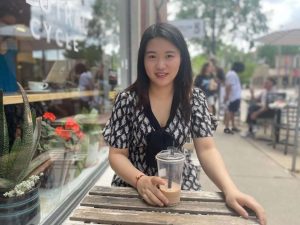 | I am a PhD candidate in communication and a master of computer science in Grainger. I study (anti-)social computing and social media. My scholarship is at the intersection of computational social science, social computing and information system. My research combines natural language processing and computer vision methods as well as experiments to look into people’s opinion and behavior. My recent research projects aims to make advances on the problem of coordinated inauthentic behavior online. I have been studying trolls, social bots and information operations for the past few years. Description of Possible Projects: One of my research projects involves investigating the contagion effect of ideas/opinions/behaviors on social networks. Specifically, I am interested in whether and how coordinated inauthentic behavior spreads. This project involves making use of a mini-Twitter platform that has been developed to conduct social experiments. During the spring semester, I will invite participants to interact on the platform and analyzing the experiment results. Key Responsibilities include enhancing and refining the existing mini-Twitter platform by developing new features and functionalities. The general timeline: before March 2023: adding new features to the platform; March - April: closely monitor and maintain the platform with experiments ongoing; Before May: analysis and writeup for conference submission Desired Skills and Time Commitment: Desired Skills: Students with a computer science background are welcome, especially those with frontend and backend experiences. The platform is built in Next.js, TypeScript, and Tailwind CSS using Cloud Firestore and Storage. Students with relevant experiences are preferred. Enthusiastic learners who may not have direct experience but are keen to acquire new skills are also welcome. Previous PURE participants in this project have benefitted greatly, gaining substantial hands-on experience in developing and maintaining a real-world social media product. Time Commitment: 5-10 hours per week. |
| Mahdi Azizi (Agricultural and Biological Engineering) 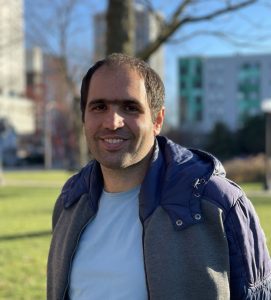 | I am a first-year PhD student in Agricultural and Biological Engineering, working on the particle tracking velocimetry (PTV) system to study airflow around the human body to promote a better understanding of the phenomena and virus transmission. Description of Possible Projects: The projects are related to various steps of doing experiments with the PTV system, including but not limited to preliminary setup, calibration, testing, and running an experiment with tracer bubbles. It’s a good opportunity to familiarize yourself with PTV systems. The project can require some hands-on skills to work the experimental setup, as well as research and programming. Desired Skills and Time Commitment: Desired Skills: The project requires an understating of some or all of the following: computer vision, camera calibration, programming (c/Matlab/python), fluid dynamics, collecting and analyzing data, and statistics. Time Commitment: The time is flexible, and currently, I am working on the basic setup of the system to make it ready for doing experiments. |
| Mohammed Hassan (Computer Science) 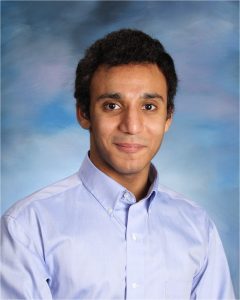 | I'm a 5th year PhD candidate of computer science. I conduct research on helping students effectively read and understand code written by others, and their strategies for reading code. Description of Possible Projects: Programmers commonly use debuggers and code execution to help them understand code. This study seeks to investigate how and why a student might prefer to choose one tool over the other and whether their choice causes them to successfully understand a given piece of code. I seek to understand how student backgrounds, particularly their self-reported passion for programming and STEM subjects, and their prior experience taking programming and STEM classes influence their preference for selecting these tools to help them understand various programs. The study's primary objective is to guide instructors on the optimal tool choice for students taking adaptive assessments. The undergraduate researcher will interview introductory programming students asking them about their passion for programming and computer science and their prior programming experience. The introductory programming student being interviewed will select one of the tools to solve problems asking them to understand and explain the purpose of a given piece of code. If the student solves the problem incorrectly, we will switch the tool. The undergraduate researcher will ask them to think aloud as they solve these problems. We will record and analyze their thought process as they solve these problems using the provided tools. I seek to understand the impact of each tool on students' ability to comprehend and explain code, taking into account their passion for programming and prior experience taking programming courses. Tentative timeline: Week 1-3: I will provide the undergrad researcher with an example of an interview I conducted. Then, we will work to collect 5-10 interviews. We will meet to discuss interviewee responses and thought-process, and any revision to the interview protocol and problems we give students Week 3-6: Collect 5-10 more interviews implementing any needed revisions. Meet to discuss again, revise protocol again if needed. Week 6-9: If needed, collect 5-10 more interviews. We will discuss and outline research paper findings and arguments. Week 9-12: Complete first draft of paper. We will split workload. E.g., I might write the introduction, background, method, undergraduate researcher writes results, discussion, and conclusions based on our meetings. Week 12-15: Revise paper drafts. Required skill of undergrad researcher: Having taken at least one introductory programming class. Desired Skills and Time Commitment: Desired Skills: The undergraduate student should have taken at least one introductory programming course to be able to follow other student’s thought processes in solving basic programming problems. Otherwise, no other experience is needed. If the student’s thought process is hard to follow/understand or they are solving a difficult problem, I’m here to help, and is also what I am excited to do. Time Commitment: I recommend meeting with me at least once a week and having watched and taken notes on a few one-hour interviews for discussion. |
| Pooja Kulkarni (Computer Science) 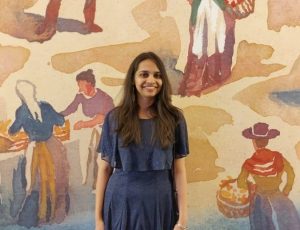 | I am a 6th year PhD student in Computer Science department, working in Theoretical Computer Science. My area of focus is Algorithmic Game Theory, specifically Fair Division. At a high level, my work looks at how to fairly divide a set of goods among a set of agents. My goal is to use the concepts in Game Theory and apply them to Fairness in Algorithms. Description of Possible Projects: I have two projects that spawn out of one big project which is to explore the efficacy of Nash Welfare in Algorithmic Fairness Settings. Do not be worried if you don't understand some technical terms in the following descriptions, we will learn them along the way. The problem consists of a set of agents, and a set of goods that are to be distributed among the agents. The agents derive some value depending on the set of goods they receive. Nash Welfare is the geometric mean of these utilities. Distributions (or allocations) that maximize Nash Welfare are known to satisfy some good fairness properties in Fair Division. (Main Project) I want us to explore application of Nash Welfare in ranking -- we would like to design a new fairness notion. In particular, we will use attributes as agents and the elements to be ranked as goods. We then rank goods in the order of their Nash Welfare (each element has a Nash welfare). The following two projects are ideas I want us to explore that come out of this project. Project 1: Theoretical In this project, we will work on theoretical aspects of the problem. In particular, first we will create a survey of different notions in Fairness in Ranking. We will then look at Nash Welfare and see how the Nash Welfare maximizing solution compares with these notions. In particular, we will try to give comparisons between the ranking output by Nash welfare order and the ranking output by at least one other fair ranking survey. The deliverables here will be (1) A survey of existing ranking algorithms (2) A note on fairness properties of Nash Welfare ranking and comparison with one existing fair ranking solution (for instance, we will either prove that the Nash ranking satisfies the properties of the chosen fair ranking or give examples showing they are incomparable.) Project 2: Experimental In this project, we study Nash Welfare Ranking experimentally. We will work with different popular datasets used for ranking and compare the properties of Nash Welfare against some properties known in the Fair Ranking literature (for instance those of top k ranking). We will also compare the algorithms on fairness measures like Proportionality, Envy Freeness. The deliverables here will be -- (1) A note on the different fairness properties (definitions, examples demonstrating them) (2) A code for Nash Welfare ranking (3) A note on results of experiments -- how does Nash Welfare ranking fare on the various fairness notions. Desired Skills and Time Commitment: Desired Skills: For Project 1, I would prefer the students to have a strong interest in working on theoretical problems. An interest in Mathematics/Combinatorics in high school or 173/374 at UIUC would be strong indicators of such interest. Having worked on such problems previously is a plus, but not necessary. For Project 2, I would expect students with background in coding (in Python) and enthusiasm to work with data and manipulate data. (You don't need to have worked with programming large datasets before, but you should be interested in pursuing such a direction.) Time Commitment: For both projects, I would expect a time commitment of 5-8 hours per week. |
| Shensheng Zhao (Electrical and Computer Engineering) 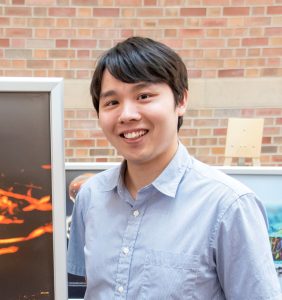 | I am a 4th year PhD student and I am a Beckman graduate fellow and Mavis Future Faculty fellow. My current research interests focus on biomedical photoacoustic and ultrasound imaging for diagnosis and therapy. I hope to work with great undergrads to develop novel biomedical techniques that benefit people’s lives. Description of Possible Projects: We offer two exciting projects for students: Project 1: Ultrasound Neuromodulation System Development This project provides an excellent opportunity to delve into the world of biomedical engineering. Students will work with cutting-edge equipment, mastering its operation, and gaining hands-on experience in equipment integration using LABVIEW. Preferably, students should be familiar with electronics devices, like oscilloscopes, RF amplifiers and functional generators. Project 2: Deep learning based Vascular Segmentation Algorithm Development This project is programming oriented. Students will receive access to comprehensive vascular datasets, and they will learn how to develop deep learning models and analyze vascular images. Desired Skills and Time Commitment: Desired Skills: Students are required to have high motivation and a willingness to learn diverse knowledge are essential attributes for project participation. Knowledge of LABVIEW and MATLAB is preferred but not mandatory. Time Commitment: Students should commit to a minimum of 8 hours of weekly lab work. |
| Shitao Shi (Computational Science and Engineering) 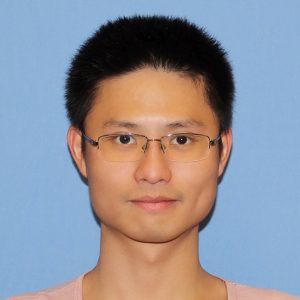 | Shitao is a dedicated 4th-year Ph.D. student in the Civil and Environmental Engineering department, specializing in structural engineering with a graduate concentration in computational and science engineering. His research focuses on the calibration of surrogate models using novel physics-informed machine learning approaches and the establishment of a robust computational framework for data-driven standard research. Description of Possible Projects: Project 1: Calibration and Validation of Surrogate Models for Braced Frame Models The first project aims to propose a comprehensive methodology for calibrating and validating surrogate models applied to braced frame models. This involves integrating differentiable modeling techniques, dynamic analysis, and Physics-Informed Neural Networks (PINN). Applicants should be familiar with statistics, machine learning, and the implementation of neural networks using PyTorch. Project 2: Robust Computational Framework for Data-Driven Standard Research The second project involves building a robust computational framework for data-driven standard research in structural engineering. The framework, adopting a modular approach and object-oriented programming, automates seismic design and contributes to the development of data-driven design methods. Applicants should be familiar with OOP, design patterns, and automated testing in Python. Experience in software development is preferred. Desired Skills and Time Commitment: Desired Skills: General Requirement: Proficient in Python, with knowledge of NumPy, Pandas, and other data processing libraries. Project 1 Requirement: Familiarity with basic statistics, machine learning, and the implementation of neural networks using PyTorch. Project 2 Requirement: Proficiency in OOP, design patterns, and automated testing in Python. Experience in software development is preferred. Time Commitment: Approximately 10 hours per week. |
| Sophia Yang (Computer Science) 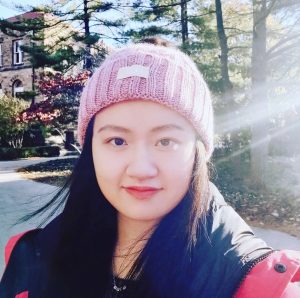 | I am a third-year Ph.D. Candidate in the Computer Science department co-advised by Professor Alawini and Professor Herman. I earned my Bachelors degree in Computer Science here at UIUC prior to beginning my Ph.D. journey, and have also had many industry intern experiences in various technical data and software roles. My research work involves applying the Levenshtein Edit Distance algorithm, sequence alignment scores, hierarchical clustering methods, and sequence processing algorithms to create visualizations depicting students' problem-solving journeys and class-wide approaches to SQL problems. These techniques aim to assist database and CS instructors in understanding students’ cognitive processes and proactively identifying challenged students for timely support. My research work involves both quantitative and qualitative studies, and while the work is currently within the scope of SQL, the techniques I've developed can be applied to other domains and programming languages as well. Description of Possible Projects: There are two projects for which I am looking for motivated and self-driven individuals who would like to work with data: Project 1 involves exploring the relationship between the number of submission attempts and students’ overall performance on that particular subject matter. Project 2 involves exploring whether certain periods or times of the day has an influence on the presence of correctly submitted solutions on certain subject matter. For both projects, you will most likely get hands-on experience working with data (cleansing, pre-processing, analyzing) using Python, as well as reading and writing for the preparation of a publication. All of the work should be completable within the semester. While I am not actively recruiting for other projects, I am also open to exploring other data-oriented projects and ideas with you. Desired Skills and Time Commitment: Desired Skills: There are no hard pre-requisites or skills needed to complete either of the two projects. However, given that the projects require the use of Python, students with prior experience would be preferred. There will be reading of prior research publications involved, as well as writing to help prepare for conference publications, so strong general reading and writing skills (without the assistance of GPT) will be strongly preferred. I will also offer guidance in this area, and don’t require you to know about publications. Requirement: be professional, responsible, honest, keep an open line of communication, and be open-minded for feedback. I prefer ones who are self-motivated, willing to learn, and aiming to go above and beyond. Time Commitment: Approximate time commitment would highly depend on the applicant, but may range from 8-10 hours/week depending on productivity, how much you will need to learn, and publication deadlines. |
| Sudharsan Rathna Kumar (Civil and Environmental Engineering) 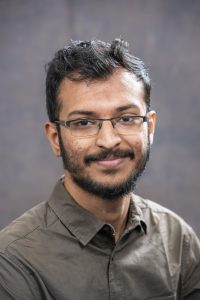 | I am a second year MS student working with Prof. Nishant Garg in the civil engineering department. My research involves using sustainable concrete systems including low clinker limestone calcined clay cement and testing its performance. I mainly work with improving its carbonation resistance while also studying opportunities for CO2 uptake, providing an avenue for permanent mineralization of CO2 in concrete. I have been both a mentor and a mentee before and understand the unique bond this relationship creates. I am looking forward to finding an enthusiastic and curious individual with independent ideas, who can learn from the project and further grow in the field in the future. Description of Possible Projects: I am currently working on cement paste specimens with supplementary cementitious materials (SCMs) and understanding its carbonation performance. This is a huge topic of interest currently in the cement chemistry world, to reduce cement in concrete- thereby preparing sustainable blends. Since, inherently low-clinker concrete is susceptible to a greater carbonation depth, the perception is that these systems are not durable. The goal about the project is to study the microstructure changes upon carbonation, and to design a blend that is both low-clinker and has higher carbonation resistance. The work is mostly experimental, where different sample preparation techniques can be learnt for further microstructure characterization like Scanning Electron Microscopy, Raman imaging. Desired Skills and Time Commitment: Desired Skills: Although some basic knowledge on cement chemistry is preferred, no prerequisite knowledge is expected, and I will teach the student about all concepts as we go along. Since most of the work is experimental, it will involve preparation of samples in the laboratory. Also, the student will be expected to process some data, for which I can guide as well. Some coding knowledge will be beneficial for this but is not mandatory. Time Commitment: As an undergrad, balancing work, research, academics and other commitments can be pretty daunting. I am happy to assist with any scheduling, or any help from my end. A minimum of 10 hours/week is expected throughout the semester. Above all, a willingness to learn and question is most preferred. |
| Ti-Chung Cheng (Computer Science) 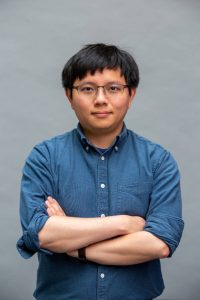 | Ti-Chung is a fourth-year PhD candidate in Computer Science at the University of Illinois at Urbana-Champaign (UIUC). He is currently working on collective decision-making mechanisms and decision-making through data visualizations under the guidance of Prof. Karrie Karahalios and Prof. Hari Sundaram. Prior to his PhD, Ti-Chung pursued a Master at UIUC, where he contributed to the Dataspread Project, working with Prof. Aditya Parameswaran and Prof. Karrie Karahalios. His research interests encompass Human-Computer Interaction (HCI) and Computer Supported Cooperative Work (CSCW), focusing on topics like voting and survey design, data visualization, and human-AI interaction. Before coming to UIUC, he earned his B.Sc degree in Computer Science and Engineering from The Chinese University of Hong Kong, conducting research in distributed machine learning algorithms in nearest-neighbor search as part of The Husky Team supervised by Prof. James Cheng. Apart from his academic pursuits, Ti-Chung is also a skilled full-stack web developer and technology educator. He has gained industry experience as a software engineering intern at Salesforce, a machine learning intern at KKBOX, and a research intern at Microsoft. Description of Possible Projects: The project focuses on studying how to serve results from a surveying mechanism called a quadratic survey based on a voting mechanism called quadratic voting. In this project, we try to understand how to provide results for decision-makers to make well-informed decisions based on individual preferences. In this project, we investigate this question using a human-computer interaction lens focused on visualization. Desired Skills and Time Commitment: Desired Skills: Research students should have strong self-driven motivation and interest in the subject matter in HCI, data visualization, and doing research with a critical lens. Students are also expected to do extensive reading and writing. Students with exposure to TypeScript, JavaScript, D3.js, and/or Vega are preferred. Time Commitment: Students are expected to devote 5-8 hours of research time per week, including the time they need to learn and explore. |
| Tony Pham (Chemical and Biomolecular Engineering) 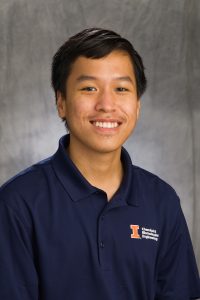 | I'm a 2nd year PhD student, working on plastic degradation by bacteria. Besides lab and class, I do Taekwondo, play soccer, and go swimming. I'm looking forward to inspiring the youngsters and creating a new generation of scientist. As a mentor, not only my undergrads do lab works, I can also discuss/help them determine their possible career paths (if they need). My work place is diverse, friendly, and collaborative. Anyone can do anything regardless of their background. Description of Possible Projects: Since it's a bio lab, the work hours are flexible (some weeks need more hours, some weeks require none), so mentees need to be ready to be time flexible. Undegrad students will learn fundamental bio lab techniques. Some weeks are busier due to the exact timings of the experiment and more patience-required works. Desired Skills and Time Commitment: Desired Skills: No prior lab skills are required, but I do require my mentees to be professional: be on time, responsible, and honest. I prefer ones who are willing to learn, committed (not a one-semester person), and aiming-to-go-beyond-expectations. Time Commitment: No required work hours per week. |
Why become a PURE Mentor?
